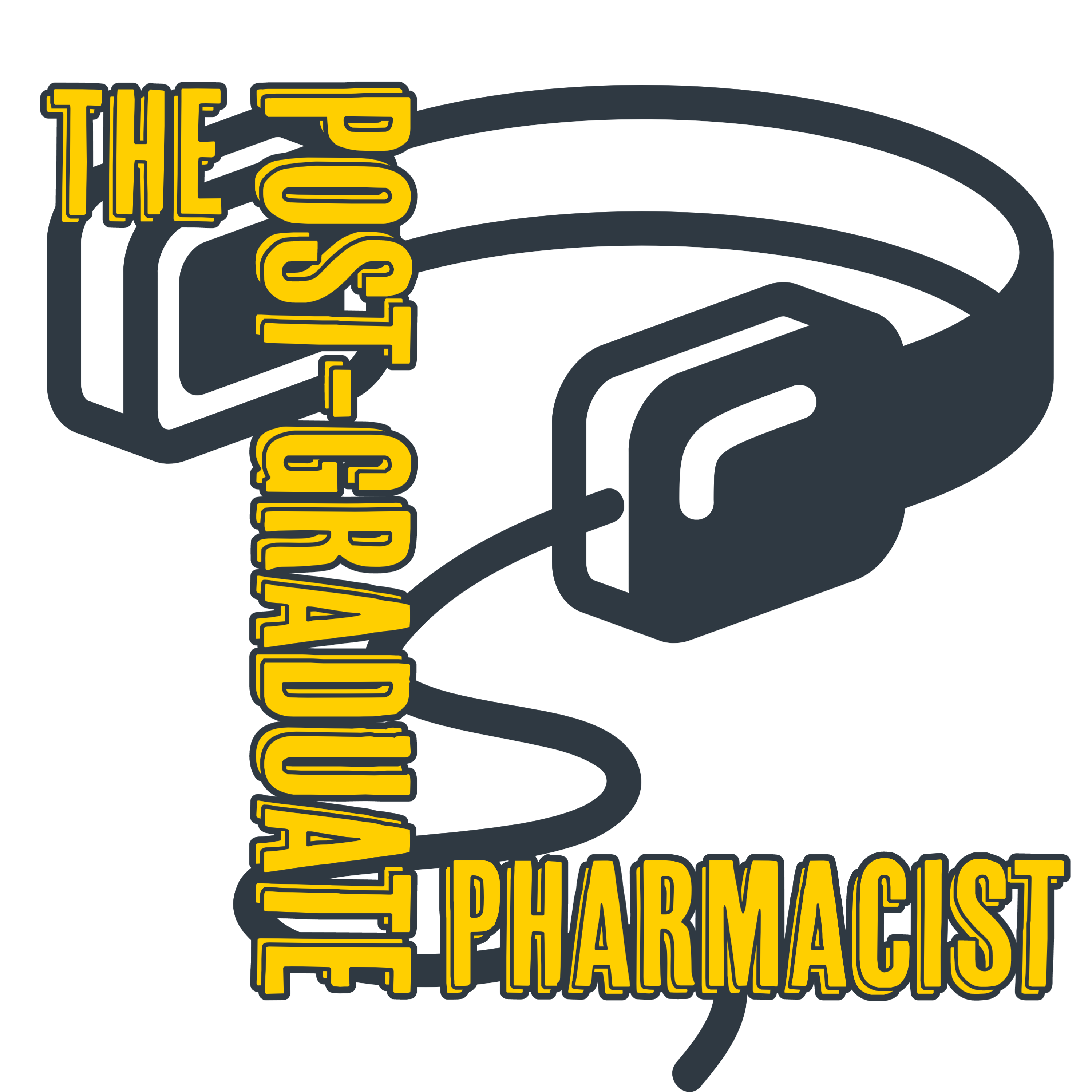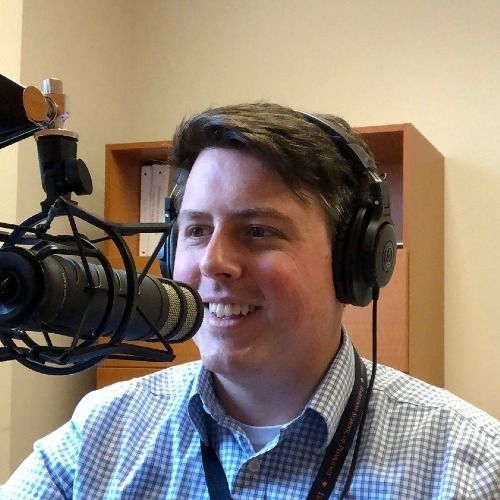Episode 40
Overcoming imposter syndrome and marketing your professional identity
This episode is all about imposter syndrome and professional identity formation and how they can impact your pursuit of post-graduate training opportunities.
Questions we discuss:
- What is imposter syndrome? Is it restricted to just student pharmacists
- What is professional identity, how does it relate to imposter syndrome?
- How can you identify if your imposter syndrome fears aren’t actually true things?
- What are some strategies to build confidence and limit imposter syndrome?
- How can you develop and market your professional identity into your self-branding?
- What advice would you give pharmacy educators to support professional identity formation and curb or limit imposter syndrome?
This episode's take-aways:
1. Imposter syndrome: feeling of inadequacy or doubting your capabilities. This feeling is not restricted to just students or residents. In fact, it is commonly felt by everyone, even those who are seasoned in their careers, especially when they have new experiences. This is an ongoing phenomenon you will encounter throughout your career.
2. Professional identity: thinking, feeling, and acting like a given profession (i.e. pharmacist). The “feeling” component of this can be difficult and can take a long time to develop the core values and behaviors of the profession. It takes a lot of time and experience to “feel” like a pharmacist.
3. Relationship between imposter syndrome and professional identity: not having fully developed a professional identity can lead to feelings of inadequacy (i.e. imposter syndrome). Professional identity formation goes through periods of growth, expansion, and reconstruction over the course of one’s career which can lead to feelings of imposter syndrome during those changes. Normalizing these feelings and embracing these new, but sometimes uncomfortable, experiences is fundamental to overcoming them.
4. Strategies to overcome feelings of imposter syndrome:
- Normalize the feeling
- Be transparent and discuss it with mentors
- Share experiences with one another
- Reflect on experiences and think about what they mean to you in your career journey
- Lead with who you are,ow n it, and be unapologetic about it
- Recognize all the hard work and accomplishments you’ve had to get to where you currently are and be proud of it
5. Marketing your professional identity: think about your personal identity and how it makes you unique (your personal beliefs and values and why those are your beliefs and values) and how they overlap with your professional identity. These make you unique and can help you brand yourself. Consider communicating those with your potential employers either in your interview, through your letter of intent, etc.
6. Pharmacy educators’ role in professional identity formation and curbing imposter syndrome:
- Recognize importance of relationships and mentorship – take the steps to initiate those relationships and build trust
- When providing feedback, frame it in a way that is not demeaning but meant to help them develop. Incorporate positive affirmations.
- Encourage students and learners to seek feedback and mentorship from multiple people to get unique perspectives
- Model the process of not knowing something, help them see you’re still learning and growing in your own journey of professional identity formation and imposter syndrome.
- Consider new ways of sharing your story and your journey with learners
Professional Identity paper discussed in today’s episode:
- Johnson JL, Arif S, Bloom TJ, Isaacs AN, Moseley LE, Janke KK. Preparing pharmacy educators as expedition guides to support professional identity formation in pharmacy education. Am J Pharm Educ. 2022 Feb 4; Article 8944. [online ahead of print] Available at: https://www.ajpe.org/content/early/2022/02/03/ajpe8944
Check out our website and sign-up to join the SASO (separate and stand out) squad. Check out our blog. If you like the show, support us by telling your friends or colleagues about it. You can also support us by clicking the coffee button on the website and buying us a cup of coffee or getting yourself some of our premium merch.
Follow us on twitter @PGPharmacist or on Facebook, Instagram, or LinkedIn @ThePostGraduatePharmacist. What questions did we not answer? What did you think of the show?
Music | "Sweet" by LiQWYD
Watch: https://youtu.be/eIYlaVPdNYM
License: https://www.liqwydmusic.com/how-to-use
Download/Stream: https://hypeddit.com/link/un7fp7

